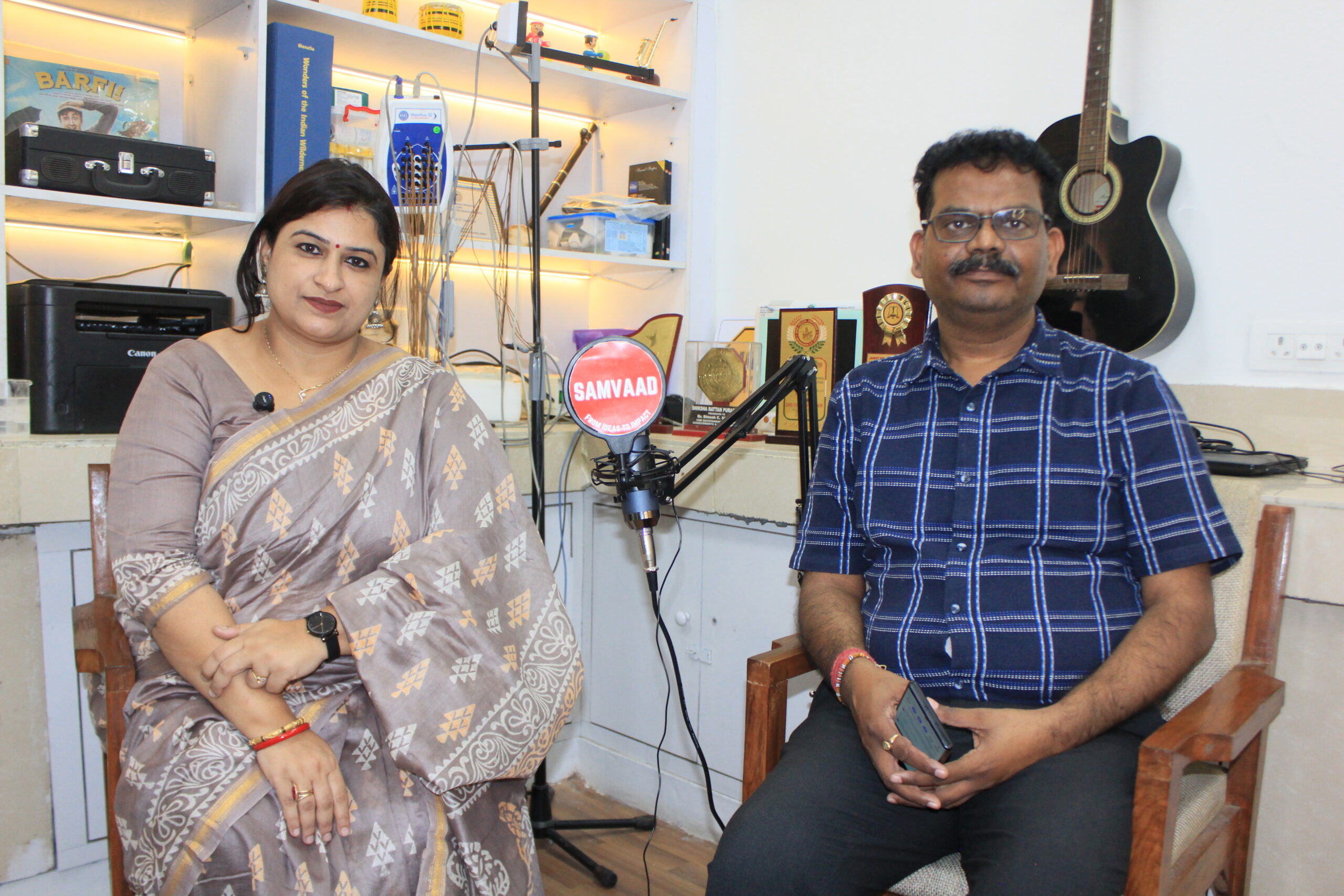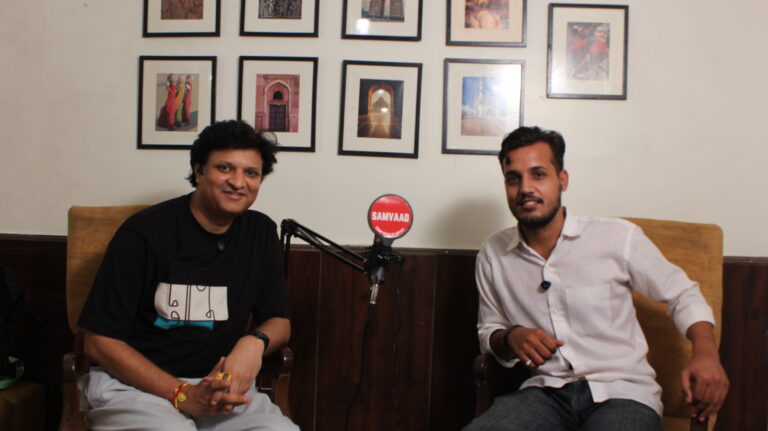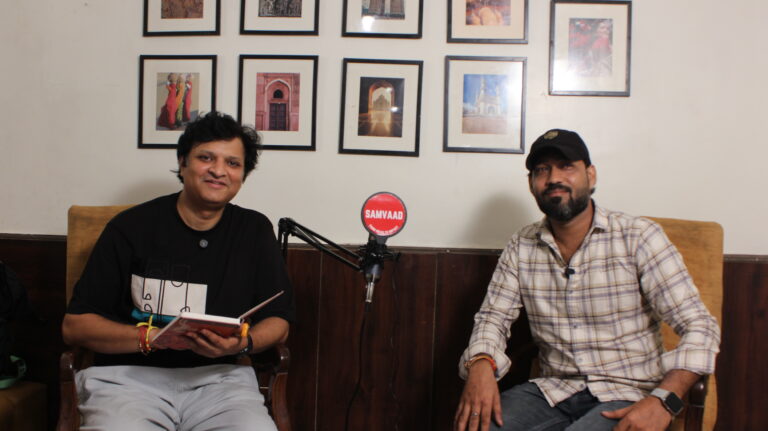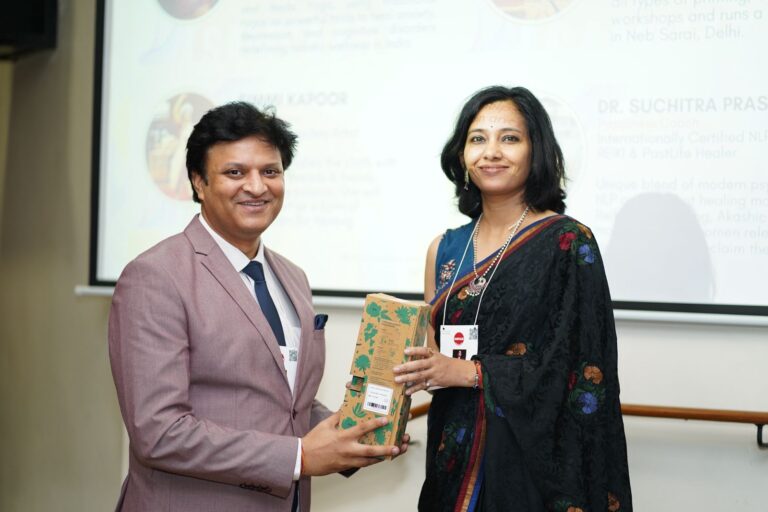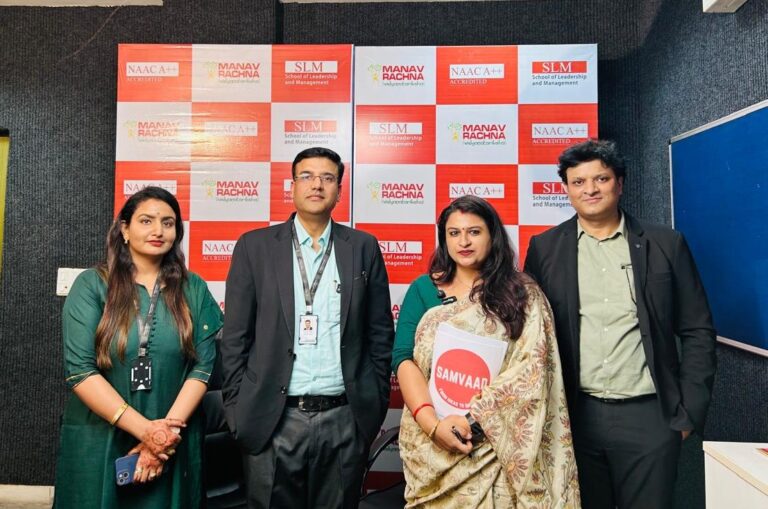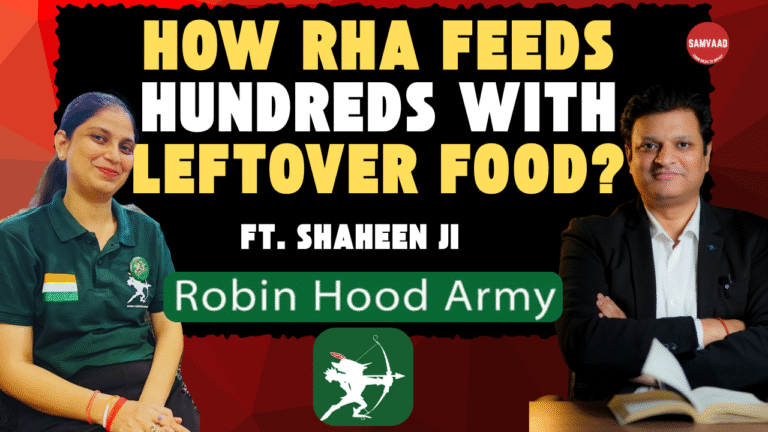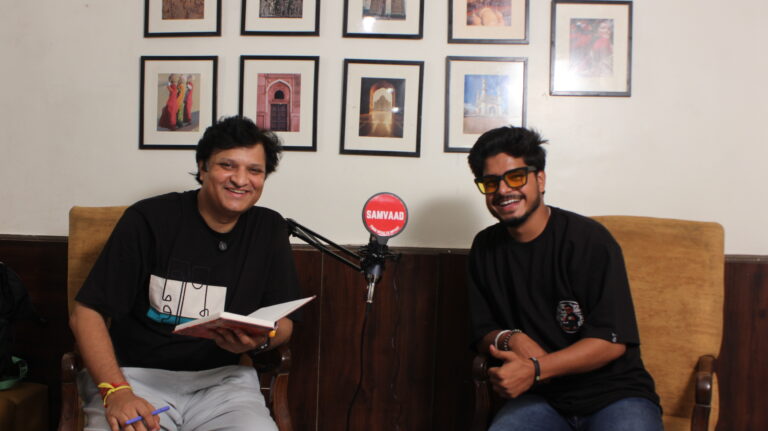Bio-Musicology: How Music Heals Beyond Entertainment, Prof.(Dr.) Dinesh C. Sharma in Samvaad Connect
Featuring Prof. (Dr.) Dinesh C. Sharma – Father of Indian Bio-Musicology & Founder of Indian Association of Music Therapy (IAMT).
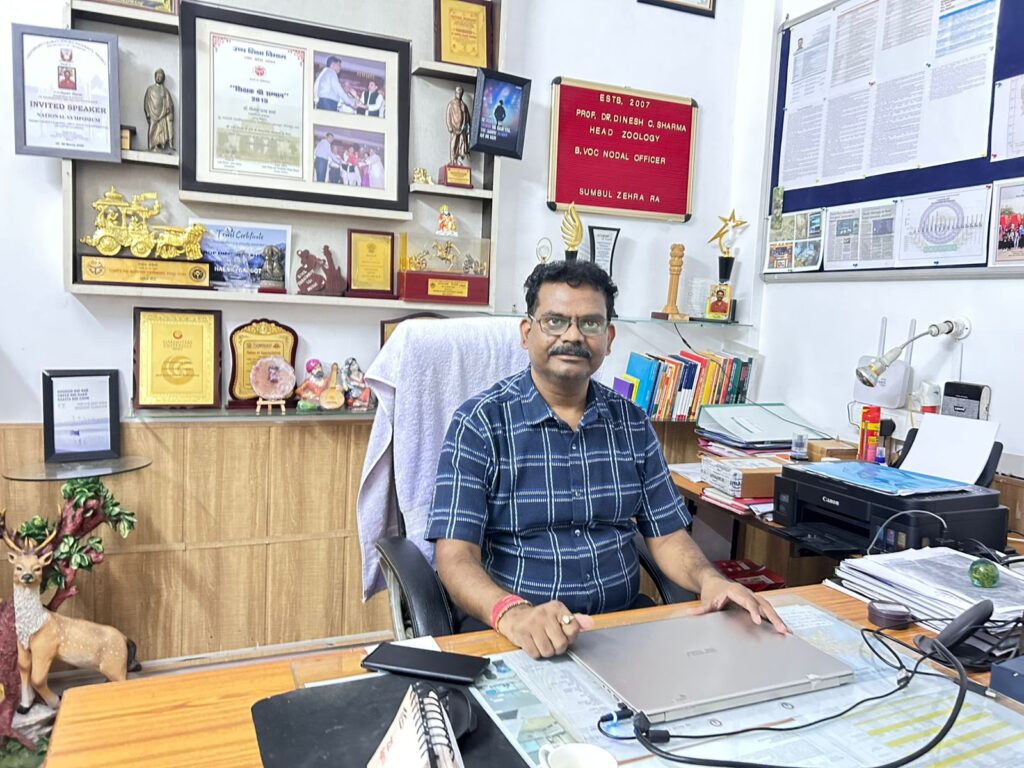
Introduction: Meet the Father of Indian Bio-Musicology
When we think of music, we often imagine concerts, playlists, or relaxation after a long day. But for Prof. (Dr.) Dinesh C. Sharma (LinkedIn), known as the Father of Indian Bio-Musicology, music is more than art—it’s a science of healing.
As a Professor of Zoology, Ph.D. in Genotoxicology, and a pioneer of music therapy in India, he has dedicated his career to proving that music is not just entertainment but an organized pattern of sound frequencies that can influence mental and physical health.
We were honored to host him at our Mental Health Conference at the India International Centre on June 14, and more recently, on the SAMVAAD Connect podcast, where he unfolded the layers of bio-musicology, a new dimension in wellness and healthcare.
What is Bio-Musicology? – The Science Behind Music Therapy in India
Prof. Sharma coined the term Bio-Musicology, establishing it as a discipline that studies the biological and neurological effects of music.
Unlike the traditional belief that music is only soothing, bio-musicology treats music as a therapy grounded in science. It’s all about:
- Frequencies and vibrations that influence the brain and body.
- Non-invasive healing methods to complement medicines.
- Scientifically validated results, including patents that prove music’s therapeutic impact.
This makes music therapy in India not just a cultural practice but a research-backed discipline.
Highlighting Research Infrastructure: It is important to note the establishment of the first-ever Bio-Musicology laboratory in India – the “Maharshi Ved Viyasa Bio-Musicology Lab”, created with the support of DST-CURIE. This pioneering facility investigates the impact of Vedic chants and therapeutic sound at biophysical, biochemical, and even gene expression levels, providing crucial scientific validation for the use of music as a Complementary and Alternative Medicine (CAM) modality.
Historical Roots: Music as Therapy After World War II
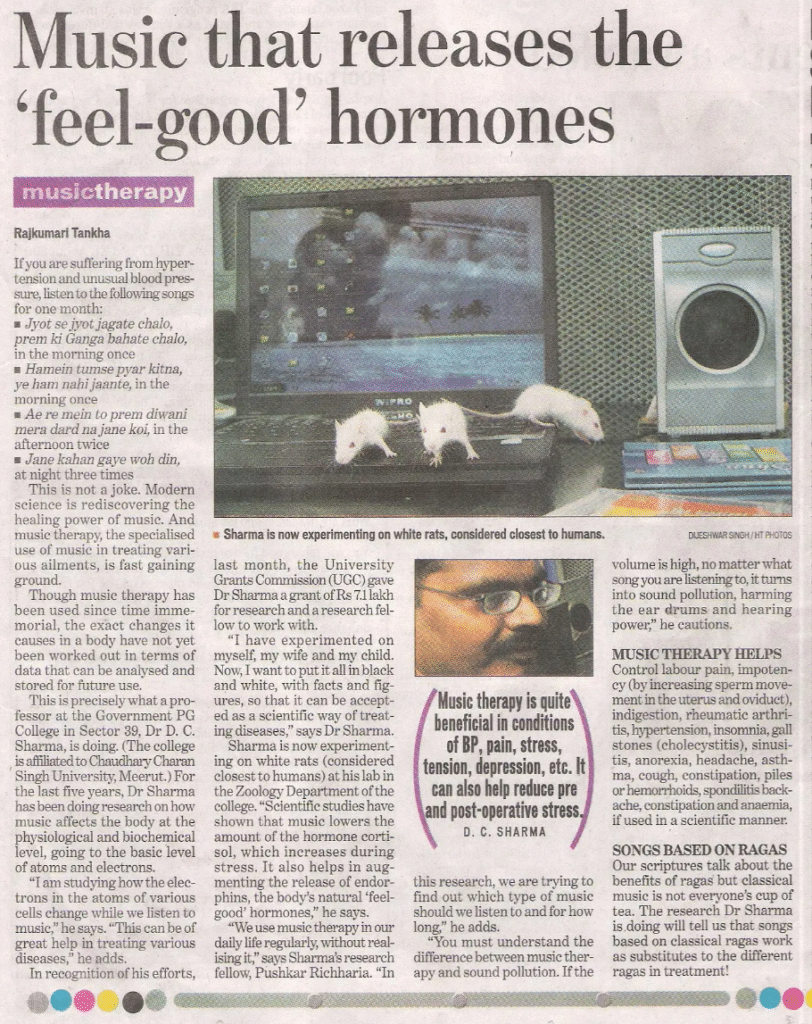
Music as a healing tool is not new. After World War II, soldiers separated from their families for years would gather in the evenings for music sessions to release trauma and stress.
Scientific studies even show instant health benefits. For example:
- Blood pressure drops after listening to certain Indian classical ragas under the right conditions.
- Instruments like the flute and veena enhance relaxation and reduce anxiety.
These examples prove that music as medicine has always existed—it simply needed recognition in the modern healthcare system.
Why Music Therapy Matters for Mental Health
With rising stress, anxiety, and burnout, especially in urban India, the role of music therapy for mental health cannot be ignored.
Prof. Sharma emphasizes that awareness and acceptance are the biggest gaps today. Many doctors still ask, “How can music help in treatments?” But the truth is:
- Music is a safe and non-invasive therapy.
- It has measurable impacts on mood, focus, and biological health.
- It complements, not replaces, conventional medication.
After COVID-19, people’s perception of health and wellness has changed. This is the right time to recognize music as a healing partner to modern medicine.
Active vs. Passive Music Therapy Approaches
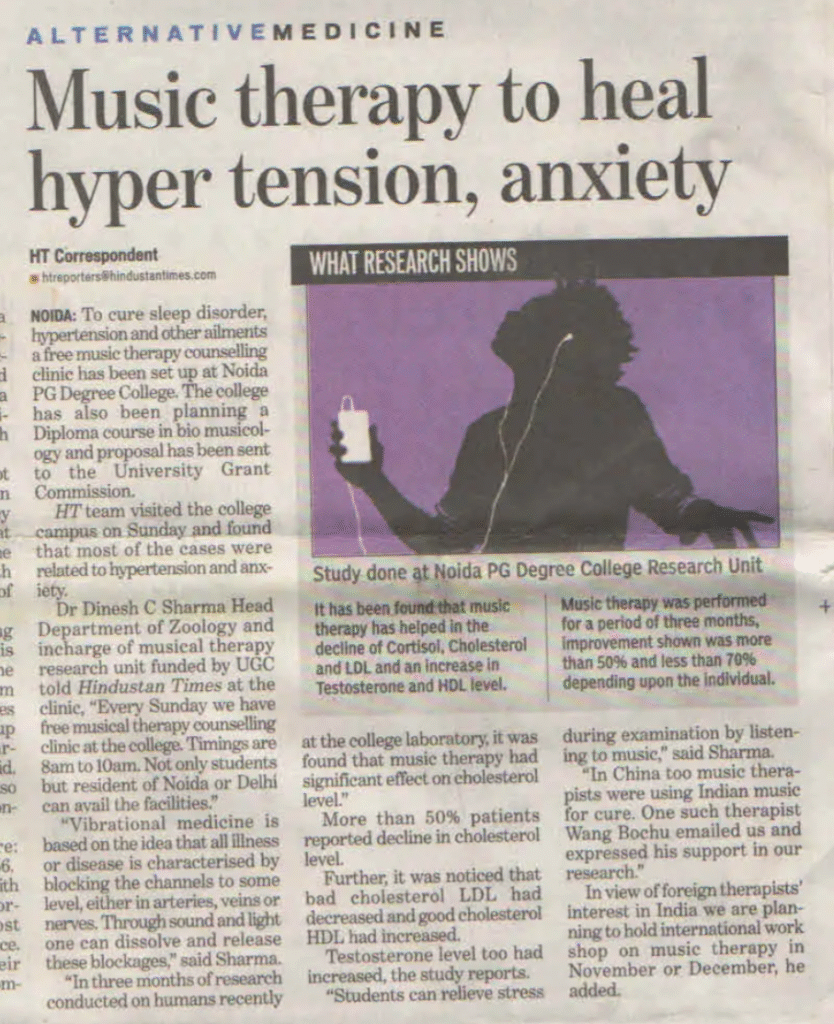
Prof. Sharma categorizes healing through music into two methods:
Active Music Therapy
- Practised by musicians, vocalists, and learners.
- Requires discipline and time.
- Builds inner balance, focus, and emotional clarity.
Passive Music Therapy
- For everyday listeners.
- Involves following a routine of prescribed music.
- Helps reduce stress, stabilize emotions, and improve efficiency.
Whether active or passive, music therapy works when used scientifically—right ragas, correct volume, appropriate time, and proper guidance.
Corporate Music Workshops: Healing Workplaces with Bio-Musicology
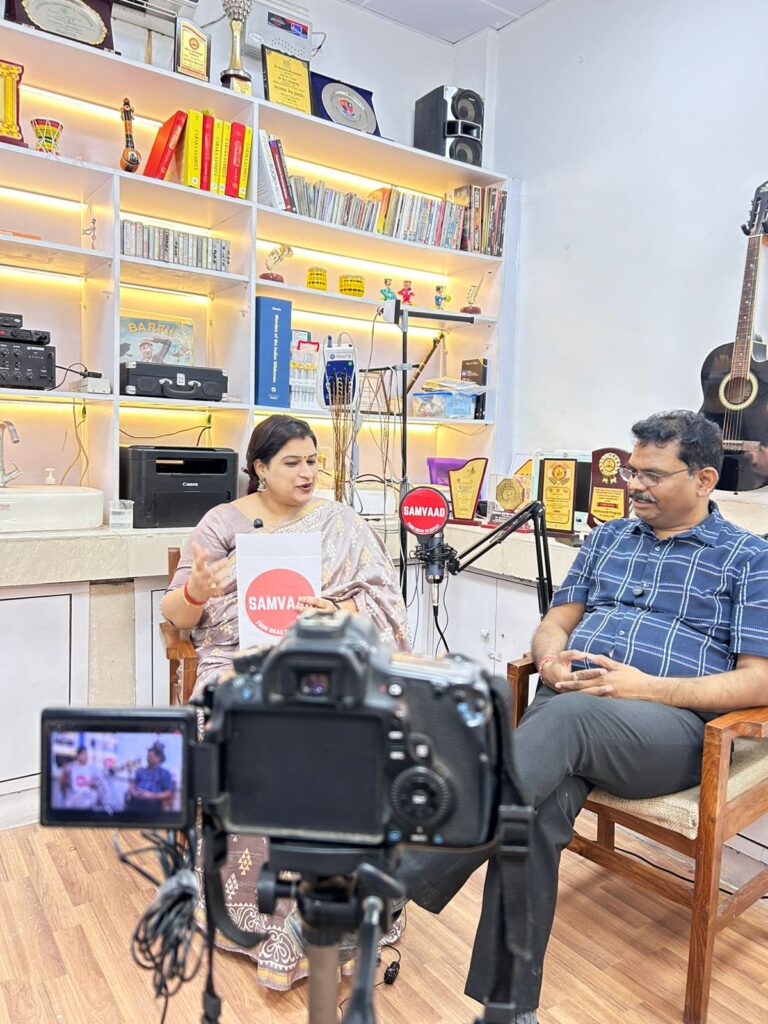
One of the most exciting areas we discussed in our podcast is the role of corporate music workshops in India.
Today’s workplaces face challenges like stress, fatigue, anxiety, and lack of creativity. According to Prof. Sharma, bio-musicology sessions for corporates can:
- Reduce employee burnout.
- Boost focus, creativity, and memory.
- Strengthen team bonding and workplace harmony.
- Create a long-term culture of wellness and productivity.
This makes music therapy not just a healthcare tool but also a corporate wellness strategy for the future.
Gaps and Challenges in Bio-Musicology
While bio-musicology is growing, Prof. Sharma admits there are challenges:
- Lack of awareness in the medical community.
- Limited acceptance in academic and research spaces.
- Myths that music is “only entertainment.”
He also raised a serious health concern: breast cancer in India has drastically increased over the last decade and is expected to rise further. Early detection through mammography can save lives, but denial keeps people from timely screening.
Similarly, with mental health, acceptance is the first step. If people can acknowledge the role of music therapy, they can experience its preventive and curative benefits.
The Future of Music Therapy in India
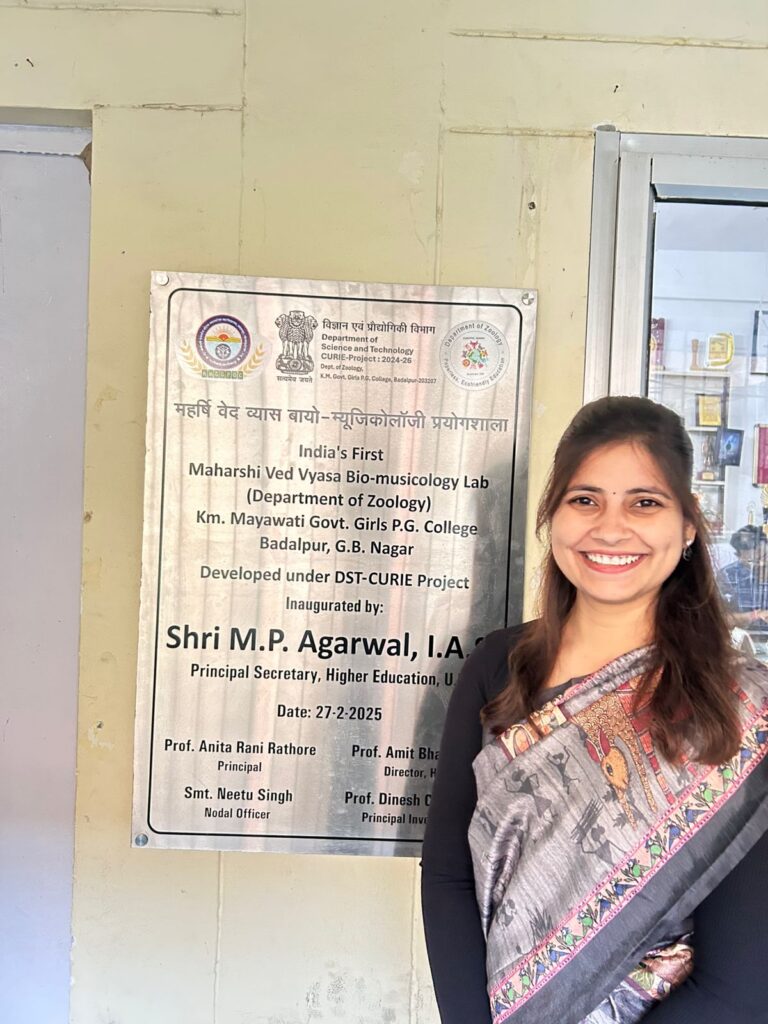
Prof. Sharma believes the future of bio-musicology lies in its integration into:
- Schools and colleges – helping students manage stress and focus better.
- Corporate organizations – for stress-free, creative workplaces.
- Hospitals and clinics – as complementary care for patients.
He also stresses that India should lead the movement, since Indian classical music, with its depth of ragas and frequencies, is uniquely powerful for healing.
Kindly note: We would also like to acknowledge Ms. Jyoti Sharma, Research Associate (DST-CURIE) and Research Head – IAMT, for her significant contribution to our work, especially in exploring the use of Shiv Stotram and Shiv Rudrashtakam in managing hypertension and regulating blood pressure.
Key Takeaways from the Podcast with Prof. Dinesh Sharma
- Music is medicine – non-invasive, safe, and scientifically validated.
- Classical music for mental health is a powerful yet underutilized tool.
- Corporate music therapy workshops can transform workplaces.
- Awareness and acceptance are crucial to bring music into mainstream healthcare.
- Both active and passive methods of bio-musicology can improve well-being.
As Prof. Sharma says, “Music is an organized pattern of sound, and when harnessed correctly, it benefits the overall efficiency of humans.”
Connect with SAMVAAD Connect & IAMT
At SAMVAAD Connect, we are dedicated to exploring new dimensions of mental health, music therapy, and wellness. This podcast with Prof. Sharma was an eye-opener, and we’re excited to bring the full episode to you soon.
Stay connected with us:
- Website: www.samvaadconnect.com
- Instagram: @samvaadconnect
- YouTube: SAMVAAD Connect
- LinkedIn: SAMVAAD Connect
- Call / WhatsApp: +91 9811901985
Also explore:
- IAMT – Indian Association of Music Therapy
- IAMT LinkedIn: Indian Association of Music Therapy
- IAMT Instagram: IAMT
- Prof. (Dr.) Dinesh C. Sharma: LinkedIn
Final Word: Music as Medicine
This Classical Music Month, let’s remember: music is more than melody. With pioneers like Prof. Sharma leading the way, bio-musicology in India is proving that healing can be as simple, and as profound as listening to the right raga.
At SAMVAAD Connect, we invite you to stay tuned for the full podcast. It’s time to experience music not just as art, but as a scientific partner in health, happiness, and human connection.
Saumya D Tewari
